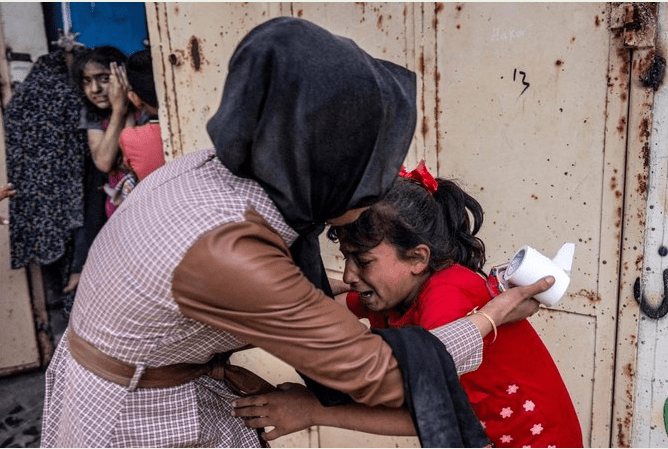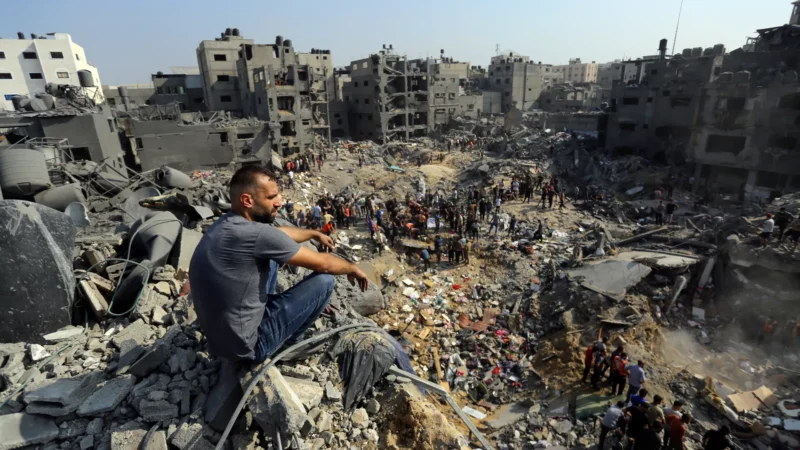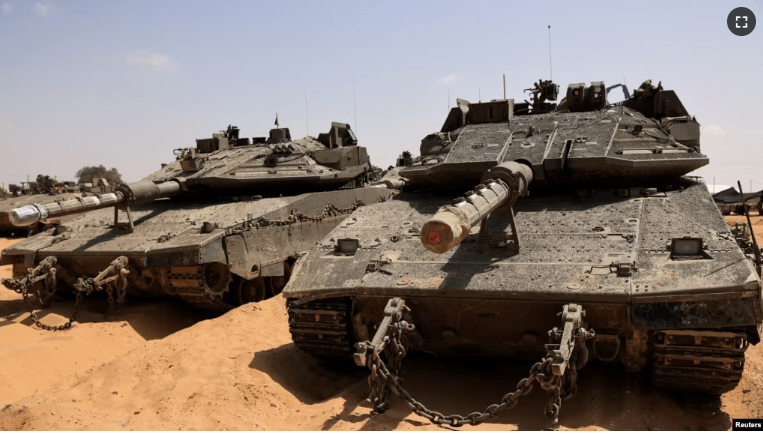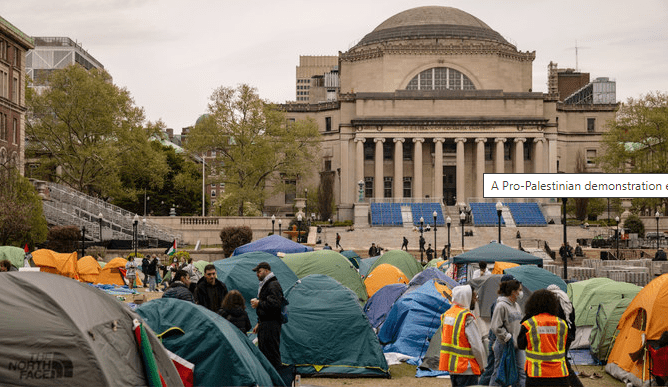‘One day to enjoy’: Economy woes dampen Afghan Nowruz celebration
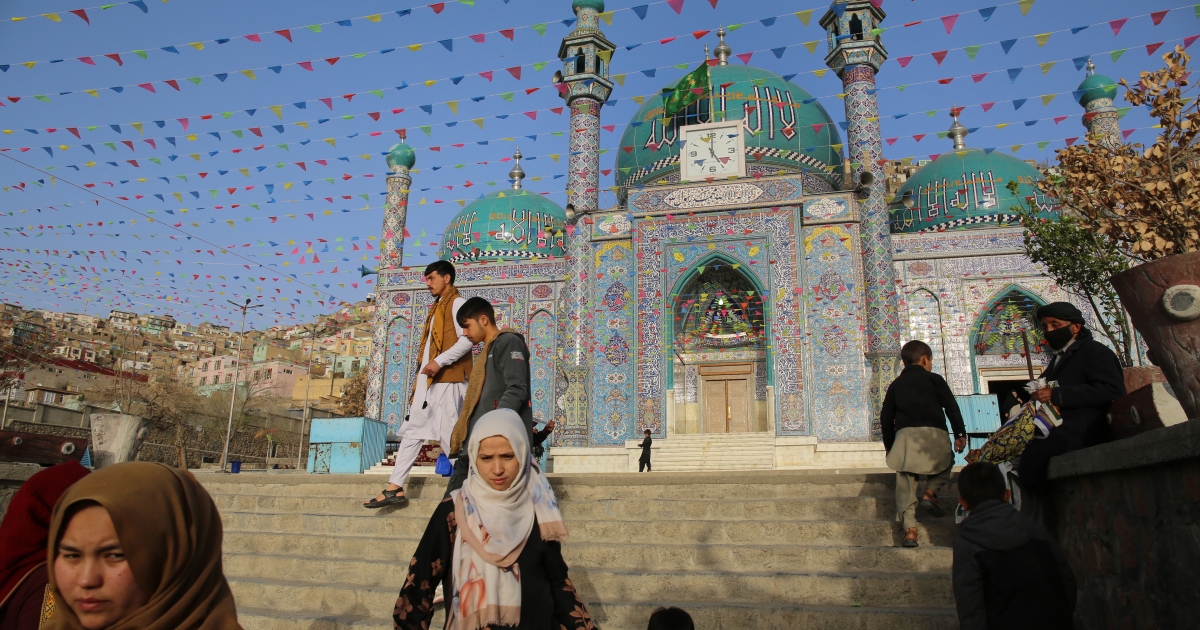
The Taliban rule and the flagging economy have seemingly put a dampener on celebrations this year.
Kabul, Afghanistan – Groups of women bustle through the female entrance of Sakhi Shah-e Mardan Shrine in Karte Sakhi in western Kabul, where many Afghans gather every year to celebrate Nowruz, which marks the arrival of spring. They rush towards the mosque located inside the shrine premises, posing for selfies and TikTok videos, wearing colourful dresses donned with sequins.
This is the first Nowruz since the Taliban returned to power 20 years after they were toppled in a United States-led invasion.
The Taliban rule and the flagging economy have seemingly put a dampener on celebrations this year. While the scenes at the shrine and mosque feel much like any other Nowruz in Afghanistan, today the numbers – even at peak hour on the eve before Nowruz – are fewer than last year.
Colourful flags flutter in the spring breeze outside the Shia shrine and mosque and on the streets in surrounding neighbourhoods. Street vendors at the bazaar sell sweets and ice cream to women pushing children on tricycles.
The shrine was attacked in 2018 during Nowruz celebrations. At least 31 people were killed in the attack claimed by ISIL (ISIS).
Today Taliban fighters guard one of the capital city’s largest shrines.
A popular festival
Nowruz has been celebrated for more than 3,000 years, observed by adherents of both the main branches of Islam – Sunnis and Shias in Afghanistan, Iran, Central Asia and parts of the Middle East – and usually marked by a public holiday.
The popular festival was banned during the Taliban’s previous rule between 1996 and 2001.
On Sunday, the Taliban administration said there would be no public holiday for the Persian New Year, though they said they would not stop people from celebrating the festival if they wanted to.
Most businesses in Kabul have chosen not to open, the owners opting to stay at home with their families for Nowruz. A few street vendors are selling food along the roads, but they are outnumbered by the Taliban in a heavy show of security despite the largely empty streets.
Shoaib, the owner of Hamisha Bahar, a flower shop in Pol-e Sorkh, Kabul, says that his business is suffering this year. “People are buying less gifts because there is just no money to spend. We have seen far less customers this year,” he told Al Jazeera.
The beginning of spring usually represents a time of hope, change and abundance, but Shoaib says that for Afghans, the year ahead is one of uncertainty.
“I don’t think people are celebrating like last year. There is just no motivation or hope right now.”
No official preparations have been made for the celebration this year, but in the north of the country, in the city of Mazar-i-Sharif – which traditionally hosts larger festivities such as the Guli Sorkh or “Red Flower” festival – preparations have been made, including Jahenda Bala, the raising of a colourful banner outside the Blue Mosque.
However, local officials in Balkh province, of which Mazar-i-Sharif is the capital, said they are formally waiting for guidance from authorities on whether they would be able to go ahead.
Feeling the economic strain
The country is feeling the economic strain that has built since the Taliban took over the government last August. Afghanistan is still lacking a functioning central banking system to address the crisis. The freezing of billions of dollars in Afghan assets by the US has worsened the banking emergency.
Outside bread shops in the capital city, men, women and children wait for free bread.
In Aktcha, a bread shop in Shahr-e Naw in northwestern Kabul, the owner says they give out 400 pieces of bread every night to between 100 and 200 people.
They have been able to distribute free bread for the past three months with foreign support, he says.
“I am a daily labourer and I come here every day because this is the only bread shop I know of that gives free bread,” says Shafiullah. “We get two pieces of bread each night.”
Day labourers with wheelbarrows are often seen helping wheel groceries and luggage for a few Afghanis.
“Tomorrow is Nowruz, but I have no choice but to work tomorrow,” Shafiullah told Al Jazeera on Sunday.
“The life situation of people at the moment is very bad. Last year, I had a salary and I was helping other people, giving them bread. This year, I’m out of work and I’m asking for bread,” he said.
The wave of humanitarian need is felt across every province in Afghanistan.
As much as 95 percent of the population does not have enough to eat, and 3.5 million children need nutritional support. The United Nations has called the situation “a food insecurity and malnutrition crisis of unparalleled proportions”.
“Since the beginning of the year, roughly 13,000 newborns have died from malnutrition & hunger-related diseases in Afghanistan. That is on average more than 170 babies every single day,” Birgit Schwarz, a senior official of Human Rights Watch, said in a tweet.
UN Deputy Special Representative for Afghanistan Ramiz Alakbarov in a statement last week said the number of people suffering from acute hunger in the country rose from 14 million in July 2021 to 23 million in March 2022. About 55 percent of the poverty-stricken country’s population face extreme hunger, with nearly 9 million a step away from famine.
The country is still in limbo awaiting the new government plans to stabilise the economy and address the unemployment across the country, says 33-year-old Shagufta.
Traditional Afghan food
In Afghans’ homes, families have been preparing for Nowruz. The sound of carpets being beaten and hosed down and the fragrant smell of sabzi challaw, a spinach and lamb stew, floods out of homes onto Kabul’s streets.
In her home, Shagufta is trying on her new dress for a party at a wedding hall. Her young children are preparing walnuts for haft mewa, a popular Nowruz dish in Afghanistan. And in her kitchen, already prepared, is mahee, a fried freshwater fish symbolising life. A tray of jelabis, sticky spiral-shaped fried sweets, is displayed on her table.
Shagufta’s daughter has been waiting to return to her high school studies. “It’s not much to celebrate,” she says. “They have said she can return to her education but she has fallen behind over the last months. She is the one that will suffer from this setback.”
Last week the Taliban announced that all schools will be reopened to boys and girls on Wednesday. So far, high schools have only been open for boys.
“The Taliban ignore women. They think we will just disappear. And we will stay at home,” says Shagufta. “But they forget that women my age were brought up to not be forgotten.
“We have celebrated Nowruz every year, and although this year is more difficult and we are feeling low with uncertainty in our future, it is one day to enjoy with our families that they [Taliban] cannot take away from us.”


